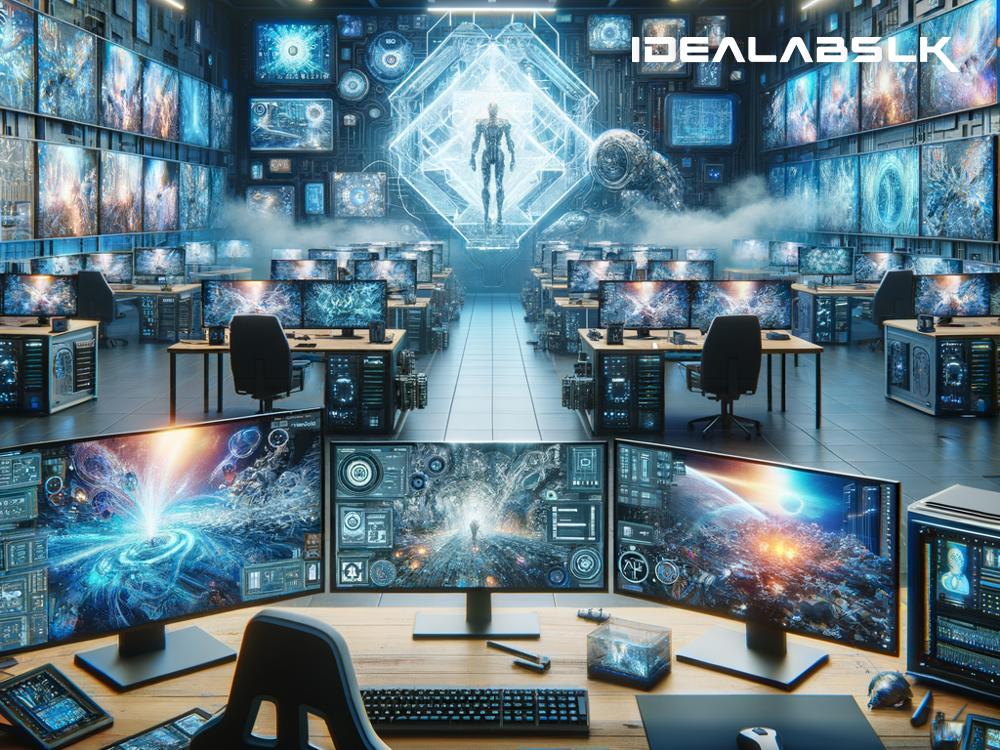The Future of Fun: How AI Will Change Gaming by 2025
Picture this: you're stepping into a game, not just any game but one that feels as alive as the real world. Trees sway in the breeze just like they do outside your window; characters in the game laugh, cry, and react as real people would. This isn't a far-off dream. By 2025, the magic ingredient making this possible is AI, or Artificial Intelligence. Let's dive into how AI is on its way to transforming gaming into something more immersive and interactive than ever before.
1. Creating Worlds That Live and Breathe
Imagine a game where the world changes just as our real world does. Day turns to night, weather changes from sunny to stormy, and the wildlife behaves as it would in the great outdoors. AI is getting better at making game environments that are incredibly lifelike. By 2025, these game worlds will feel so real that stepping into a game will be like stepping into another reality.
2. Characters That Feel Like Real People
One of the coolest things AI is doing is creating game characters that can think and react like real people. These aren't your typical scripted characters who only say the same few lines. We're talking about characters who can have conversations with you, remember what you've said, and even develop their own opinions about you! By 2025, playing a game will feel like interacting with a cast of real people, each with their own personality and backstory.
3. Games That Adapt to You
Ever wished a game could be tailor-made for you? AI is making that possible. Games are being developed that can adapt to how you play. If you love puzzles, the game might throw more challenging puzzles your way. Prefer action? Suddenly, you might find yourself in the middle of thrilling battles. By 2025, games will be more personalized, making each player's experience unique.
4. Making Multiplayer Even Better
Playing with friends is a big part of gaming, and AI is set to make multiplayer experiences even smoother and more enjoyable. Imagine AI systems that can predict when players will be online, making it easier to find times to play together. Or AI that can detect when players are struggling with a level and offer tips or even adjust the game's difficulty in real-time. By 2025, playing games with friends will be more seamless and fun.
5. Training AI Through Gaming
Here's a twist: while we're playing games, we're also training AI. Many games already use AI systems that learn from how players play. This means the more we play, the smarter these AI systems get. By 2025, the AI in games might be learning from millions of players worldwide, leading to games that are constantly evolving and improving.
The Challenges Ahead
As exciting as all this sounds, there are challenges. Making these advanced AI systems requires a lot of computing power, and ensuring that games are fair and fun for everyone is no small feat. There's also the ethical side of AI development, ensuring that these technologies are used responsibly and don't infringe on privacy.
Conclusion: A Future Full of Possibilities
By 2025, AI will transform gaming in ways we're just beginning to imagine. We'll step into game worlds that feel as vibrant and alive as the real one. We'll interact with characters that think and react like real people. Games will adapt to our personal play styles, making each experience uniquely ours. And as we play, we'll also be helping to train the AI systems that power these incredible experiences.
The future of gaming is bright, and AI is the guiding light. As we look forward to 2025, one thing is clear: games are about to become more immersive and interactive than ever before. So, get ready to step into the future of fun—where the games we play are limited only by our imaginations.

